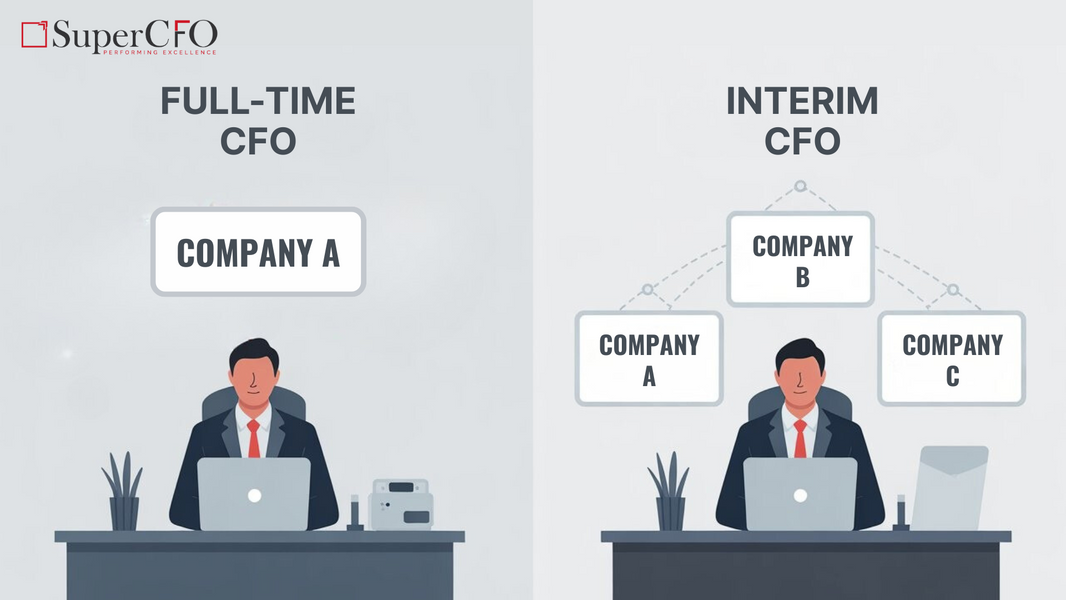The 3 Pillars of a Strong CFO Office: Building Beyond the Top
When most people think about building a strong finance function, they focus on one thing: hiring a brilliant CFO. And while that's certainly important, there's a crucial truth that often gets overlooked in boardrooms and strategy sessions.
The real strength of a CFO office doesn't come from the person at the top alone. It comes from the three core leaders who quietly run the operation behind the scenes, day in and day out.
The Car Analogy That Changes Everything
I like to think of the CFO office like a well-engineered car. You can have the best driver in the world, but without the right components working in harmony, you're not going anywhere fast and more importantly, safely.
Here's how the three pillars break down:
1. The Financial Controller: Your Reliable Engine
The Financial Controller is the engine of your finance operation. They're the ones making sure everything runs exactly the way it should. Quietly, reliably, and without surprises.
While everyone else is focused on the big picture and future strategy, your Financial Controller is ensuring the books are accurate, compliance is maintained, and the day-to-day financial operations flow smoothly. They're not flashy, but they're absolutely essential. When your Financial Controller is doing their job well, you barely notice them. When they're not, everything breaks down.
2. The FP&A Head: Your Strategic GPS
Think of your FP&A (Financial Planning & Analysis) Head as the GPS of your organization. They're constantly scanning the horizon, helping you see where you're going and identifying potential roadblocks before they become major problems.
This role is where data transforms into insight, where numbers become strategy. Your FP&A Head doesn't just tell you what happened instead they help you understand what's likely to happen next and what you should do about it. They're your early warning system and your strategic compass rolled into one.
3. The Legal Head: Your Essential Safety Belt
The Legal Head might be the most under-appreciated role in the CFO office. Like a seatbelt, you don't think about them until something goes wrong. And then, you're incredibly grateful they're there.
In today's complex regulatory environment, having strong legal leadership isn't just nice to have but it's survival. They're the ones protecting the organization from compliance issues, contract disputes, and regulatory challenges that could derail everything you've built.
The Feedback That Validates the Framework
When we shared this framework on LinkedIn, something interesting happened. CFOs from around the world chimed in with their own insights, and many highlighted two additional functions that deserve recognition in this conversation: Treasury and Investor Relations.
It's a reminder that while these three pillars form the foundation, truly robust CFO offices often expand to include other specialized functions as organizations grow and mature. Treasury management becomes critical as companies scale and deal with more complex cash flow and funding needs. Investor Relations becomes essential for public companies or those actively raising capital.
Why Missing Even One Pillar Hurts
These roles are not interchangeable, and they're not optional. Miss even one of these pillars, and the business suffers. It happens slowly at first, almost imperceptibly. Then quietly, problems start to compound. And then, all at once, you realize you're in trouble.
A Financial Controller who's overwhelmed or inexperienced leads to reporting errors and compliance issues. An FP&A Head who's not up to the task means you're flying blind on strategic decisions. A weak Legal Head leaves you exposed to risks you didn't even know existed.
Building Your Foundation
If you're a CEO or business leader thinking about strengthening your finance function, don't just focus on the CFO hire. Think about the entire structure. Consider:
- Do you have someone who can reliably handle your day-to-day financial operations?
- Do you have someone who can translate your financial data into strategic insights?
- Do you have someone protecting you from legal and regulatory risks?
The best CFOs understand that their success depends on having strong leaders in each of these areas. They know that their role is to orchestrate this team, not to try to do everything themselves.
The Bottom Line
Building a strong CFO office is about more than finding one exceptional leader. It's about creating a system where the right people are in the right roles, working together to support your organization's financial health and strategic objectives.
The next time you're evaluating your finance function, look beyond the top. Ask yourself: do you have all three pillars in place? Because in the world of finance, the foundation is everything.
What's your experience with building finance teams? Have you seen the impact of having strong leaders in these core roles? I'd love to hear your thoughts in the comments below.










